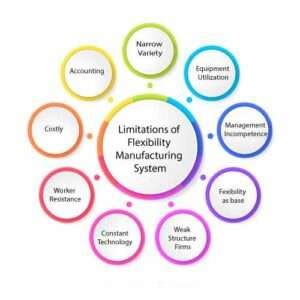Introduction

Job production manufacturing stands as a pivotal pillar in the realm of industrial production, catering to the specific needs of customers by crafting unique products in small batches. Unlike mass production, which focuses on large-scale, standardized output, job production manufacturing celebrates diversity, delivering customized solutions tailored to individual requirements.
Industry Overview
According to a report by Grand View Research, the global job production manufacturing market size was valued at USD 16.46 billion in 2020 and is projected to reach USD 26.23 billion by 2028, exhibiting a CAGR of 6.3% from 2021 to 2028. This growth is primarily attributed to the increasing demand for customized products, technological advancements, and a growing focus on sustainability.
Key Characteristics
Job production manufacturing is characterized by several key features:
- Customization: Products are tailored to meet specific customer requirements, accommodating unique specifications, materials, and designs.
- Small Batches: Production volumes are typically low, ranging from one-of-a-kind prototypes to small batches of hundreds or even thousands.
- Flexibility: The manufacturing process is highly adaptable, allowing for quick adjustments to meet changing customer demands and market trends.
- Skilled Workforce: Skilled engineers, technicians, and artisans are essential for executing complex designs and delivering high-quality products.
Applications
Job production manufacturing finds application in a wide range of industries, including:
- Aerospace: Custom-made parts and components for aircraft and spacecraft
- Medical: Personalized medical devices, implants, and prosthetics
- Electronics: Specialized electronic devices, sensors, and instrumentation
- Automotive: Prototype vehicles, limited-edition models, and specialty parts
- Machine Tools: Custom-designed machines for specific production requirements
Benefits of Job Production Manufacturing
- Increased customer satisfaction: Meeting unique customer needs enhances loyalty and satisfaction.
- Reduced product development time: Customization eliminates the need for lengthy design cycles and production setup.
- Improved quality: Small-batch production allows for meticulous attention to detail and rigorous quality control.
- Enhanced time-to-market: Rapid product development and low production volumes accelerate time-to-market, giving businesses a competitive edge.
- Reduced inventory costs: Custom production minimizes the need for large inventory stocks of standardized products.
How Job Production Manufacturing Matters
Job production manufacturing plays a vital role in various sectors:
- Innovation: Enables the development of new and innovative products that address emerging customer needs.
- Economic growth: Supports small businesses, suppliers, and local economies by creating employment opportunities.
- Sustainability: Reduces waste by minimizing overproduction and promoting efficient resource utilization.
- Job creation: Requires skilled workers, fostering job growth and economic empowerment.
Tips and Tricks for Effective Job Production Manufacturing
- Establish Clear Specifications: Define customer requirements accurately to avoid errors and rework.
- Optimize Production Processes: Streamline operations, identify bottlenecks, and implement automation for efficiency gains.
- Invest in Skilled Workforce: Recruit and train experienced professionals to ensure high-quality execution.
- Embrace Technology: Leverage advanced manufacturing technologies, such as 3D printing and robotics, to enhance precision and speed.
- Foster Collaboration: Encourage teamwork among engineers, designers, and production staff to overcome challenges and deliver exceptional results.
Conclusion
Job production manufacturing empowers businesses to meet diverse customer demands, drive innovation, and create unique products that add value. By embracing customization, flexibility, and skilled craftsmanship, manufacturers can unlock the full potential of this dynamic sector, contributing to economic growth, job creation, and sustainable manufacturing practices.
